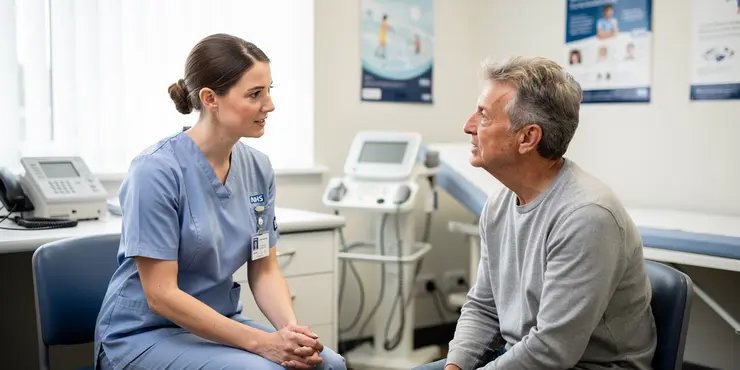
Find Help
More Items From Ergsy search
-
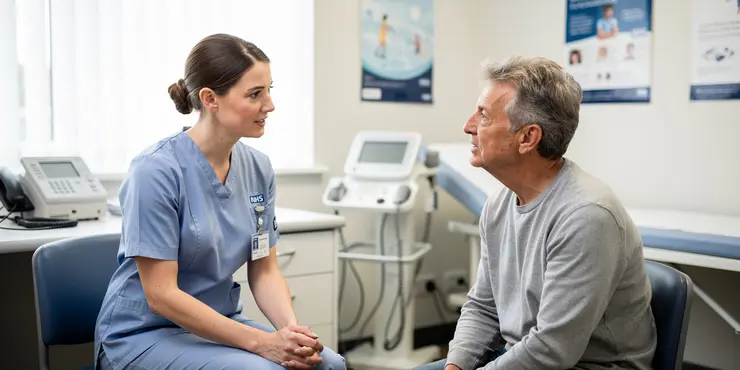
What sources should I consult for information on Covid-19?
Relevance: 100%
-
What is a COVID-19 variant?
Relevance: 72%
-
How are COVID-19 variants detected?
Relevance: 70%
-
What is the Covid-19 Stratus variant?
Relevance: 69%
-
Where can I learn about real Covid-19 variants?
Relevance: 69%
-
What are the COVID-19 travel restrictions for traveling to Spain?
Relevance: 68%
-
Does the flu vaccine protect against COVID-19?
Relevance: 68%
-
Can the COVID jab give me COVID-19?
Relevance: 67%
-
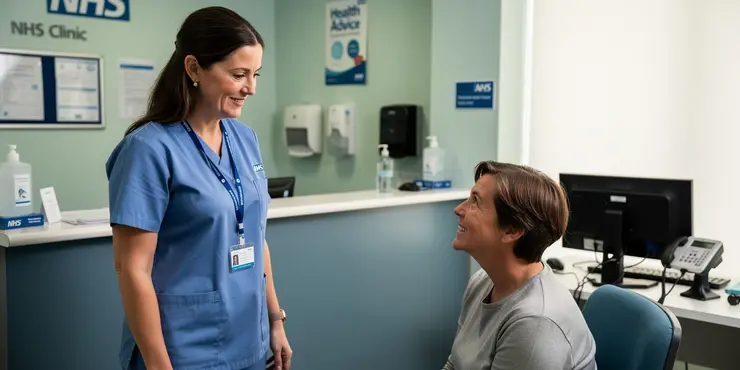
How can I protect myself from new COVID-19 variants?
Relevance: 66%
-
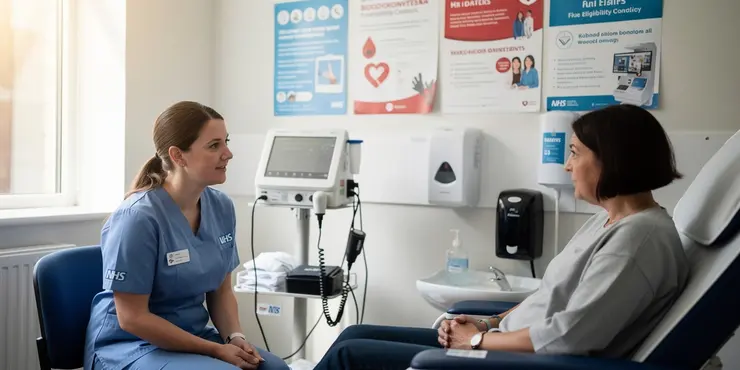
Can COVID-19 be transmitted through blood transfusions?
Relevance: 66%
-
Does travel insurance cover COVID-19 related issues?
Relevance: 65%
-
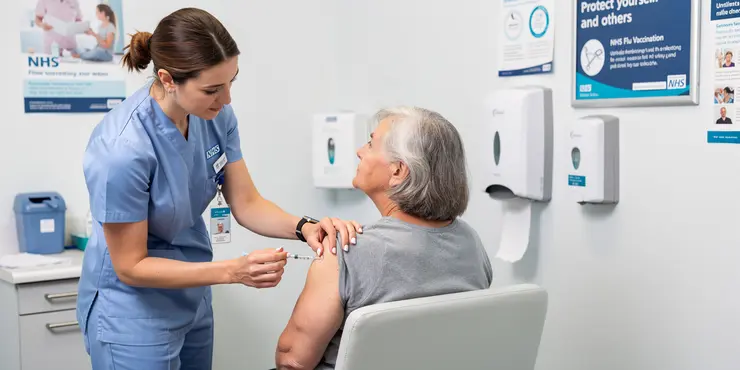
Will getting the flu jab protect me against COVID-19?
Relevance: 65%
-
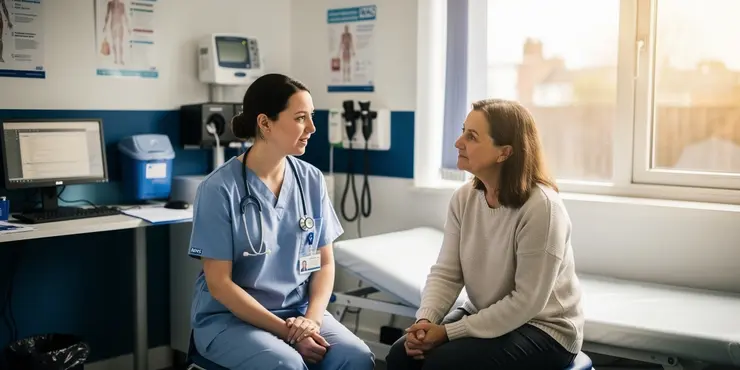
Should I get vaccinated if I already had COVID-19?
Relevance: 65%
-
How do COVID-19 variants arise?
Relevance: 65%
-
Do new variants affect COVID-19 testing?
Relevance: 64%
-
What is the process to identify a new Covid-19 variant?
Relevance: 62%
-

Breathlessness after COVID-19 - helpful techniques
Relevance: 62%
-
Can air physiotherapy help with COVID-19 recovery?
Relevance: 62%
-
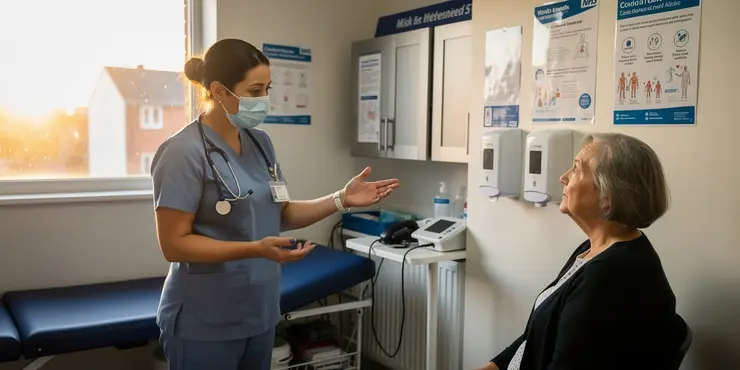
How can I protect myself from Covid-19 variants?
Relevance: 61%
-

How do scientists name new Covid-19 variants?
Relevance: 60%
-
How often do new COVID-19 variants emerge?
Relevance: 59%
-
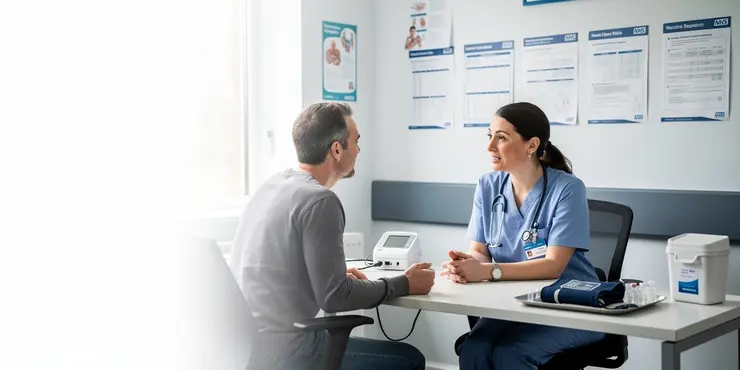
Do vaccines work against new COVID-19 variants?
Relevance: 59%
-
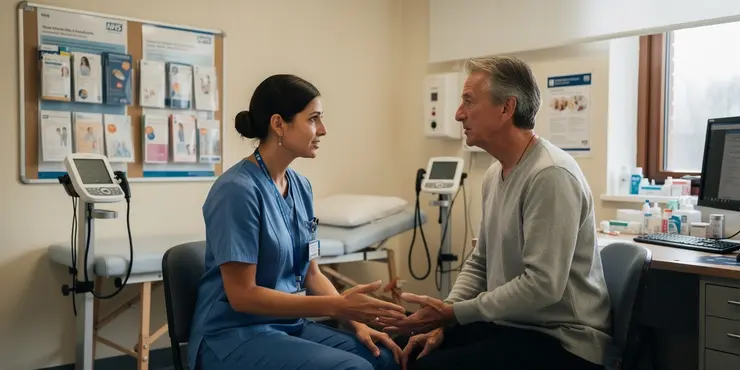
Are new COVID-19 variants more dangerous?
Relevance: 58%
-
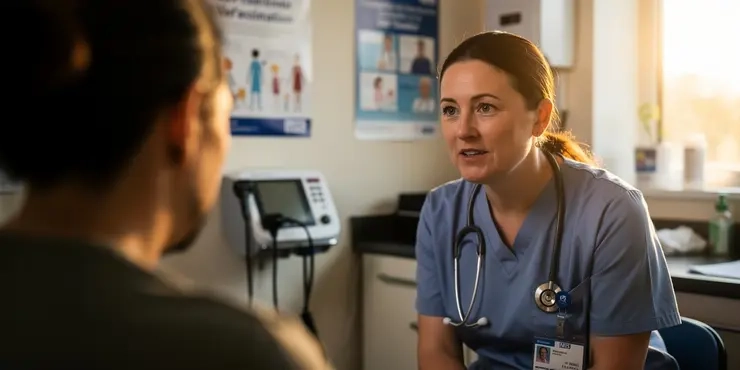
Does the COVID jab affect fertility?
Relevance: 38%
-

What are the Nimbus and Stratus variants of Covid?
Relevance: 37%
-
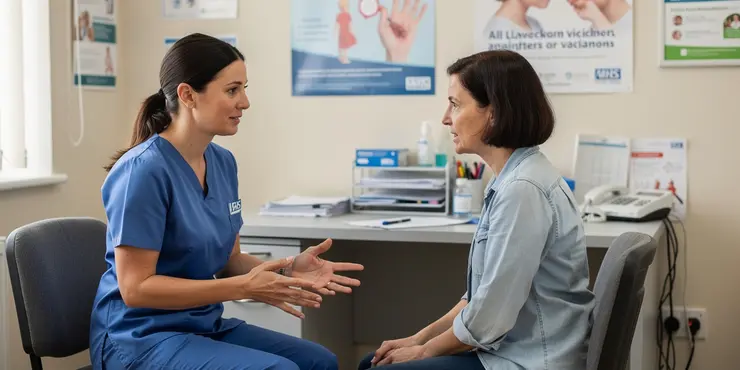
Are there any long-term side effects of the COVID jab?
Relevance: 36%
-
Can I get the COVID jab if I am pregnant or breastfeeding?
Relevance: 36%
-

Can I get the COVID jab if I have allergies?
Relevance: 35%
-
What are some well-known COVID-19 variants?
Relevance: 34%
-
Are the symptoms different with new COVID-19 variants?
Relevance: 34%
-
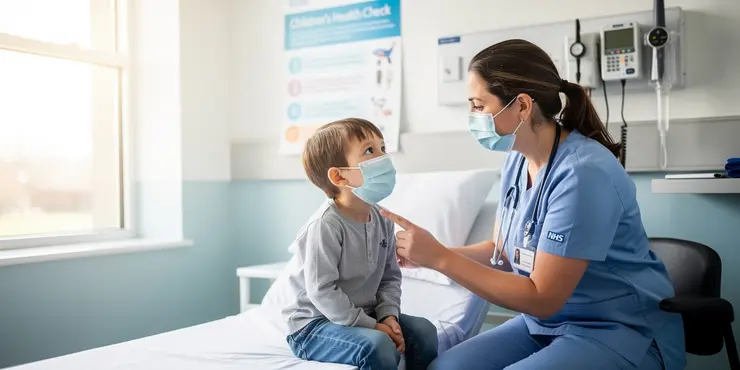
Are children more affected by new variants of COVID?
Relevance: 34%
-
How do COVID jabs work?
Relevance: 33%
-
Should I get a COVID jab?
Relevance: 31%
-
Who is eligible to receive the COVID jab?
Relevance: 31%
-
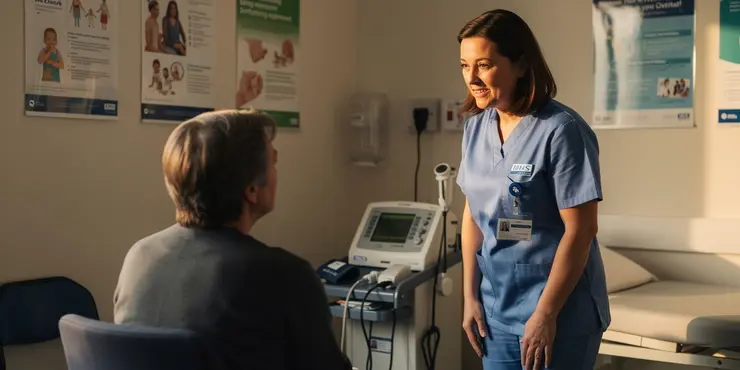
Is there concern about new hypothetical variants like Nimbus and Stratus?
Relevance: 30%
-
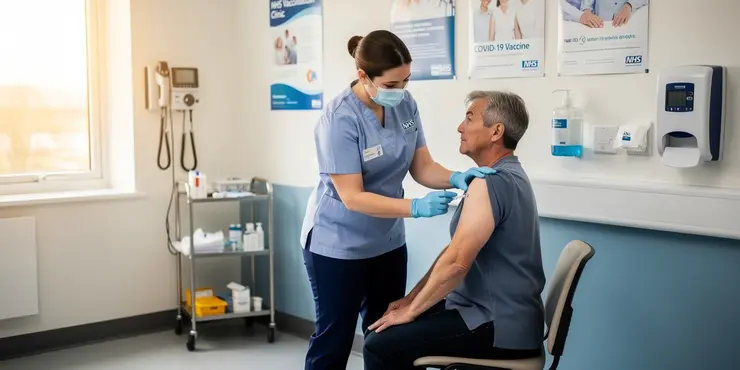
Are COVID jabs safe?
Relevance: 30%
-
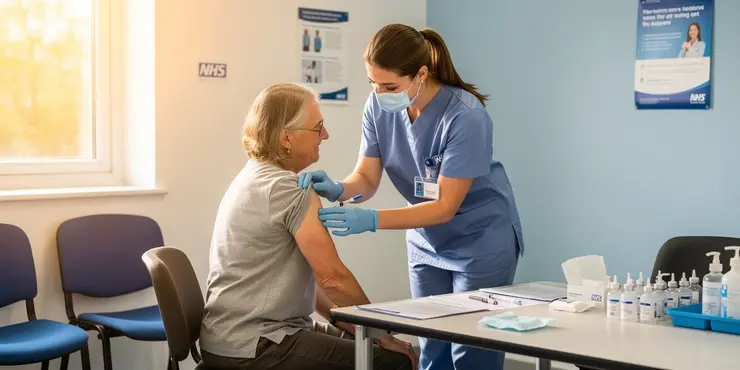
when will i need my next COVID jab?
Relevance: 30%
-
Can current treatments handle new COVID-19 variants?
Relevance: 30%
-
What is being done globally to track COVID-19 variants?
Relevance: 30%
-
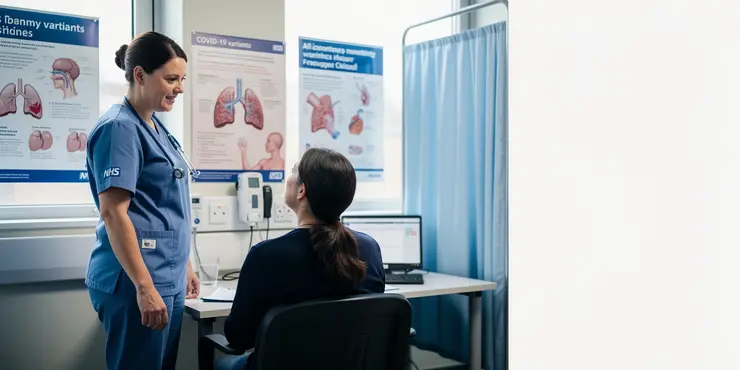
Can new variants cause reinfection?
Relevance: 29%
NHS Official Website
For UK residents, the NHS (National Health Service) official website is a primary source of reliable and up-to-date information regarding Covid-19. The NHS provides detailed guidance on symptoms, prevention measures, testing, and vaccination. They offer easy-to-understand advice tailored specifically for individuals residing in the United Kingdom, ensuring relevance to the healthcare system and protocols in place.
UK Government Website
The GOV.UK website is a critical source for official guidance and announcements related to Covid-19. It contains a wealth of information, including government measures, laws, travel restrictions, and statistics related to the pandemic. By consulting this website, you can stay informed about the latest policies, such as lockdown restrictions, quarantine protocols, and updates from health authorities including Public Health England and the Department of Health and Social Care.
World Health Organization (WHO)
The World Health Organization (WHO) is an invaluable resource for global Covid-19 information. The WHO provides international updates, scientific research, and health advice applicable worldwide. While it may not focus specifically on the UK, its guidance is essential for understanding the broader context of the pandemic and for accessing trusted information on the virus and its variants.
Centers for Disease Control and Prevention (CDC)
Although the CDC is based in the United States, it remains a respected global health authority that provides comprehensive information on Covid-19. For those interested in scientific insights and the global perspective on managing the virus, the CDC's research papers, health guidelines, and preventative measures are beneficial.
Scientific Journals and Publications
For those seeking more in-depth research, scientific journals such as The Lancet, the British Medical Journal (BMJ), and Nature offer peer-reviewed articles on Covid-19. These publications provide detailed examinations of studies conducted by scientists around the world and are useful for understanding the ongoing research concerning the virus, treatments, and vaccine developments.
Local Health Authorities
Local health authorities, such as regional NHS trusts and councils, can provide specific information relevant to local areas in the UK. They often issue localized updates about testing sites, vaccination centers, and regional statistics. Staying informed through local channels ensures awareness of how Covid-19 affects your community specifically.
Reputable News Media
Reputable news organizations such as the BBC, The Guardian, and The Times in the UK often provide timely updates and analyses of Covid-19. These sources compile data, expert opinions, and governmental announcements to keep the public informed about the pandemic's progression. They offer fact-checked reporting, which is critical in an era of widespread misinformation.
NHS Official Website
If you live in the UK, the NHS website is a good place to find information about Covid-19. The NHS tells you about symptoms, how to stay safe, testing, and vaccines. They explain things in a way that makes sense for people in the UK.
UK Government Website
The GOV.UK website is important for finding rules about Covid-19. They tell you about what the government is doing, laws, travel rules, and numbers about the virus. By looking at this website, you can learn about lockdowns, quarantine rules, and news from health offices like Public Health England.
World Health Organization (WHO)
The World Health Organization (WHO) gives information about Covid-19 around the world. They share updates and advice that is useful everywhere. Even if they don't focus on the UK, their information helps us understand Covid-19 better.
Centers for Disease Control and Prevention (CDC)
The CDC is in the United States, but they give important information about Covid-19 for everyone. If you want to know more about the science behind Covid-19 and how to deal with it, their research and advice are helpful.
Scientific Journals and Publications
If you want to know about research, journals like The Lancet, the British Medical Journal (BMJ), and Nature have detailed articles about Covid-19. They talk about what scientists are learning about the virus, how to treat it, and vaccine research.
Local Health Authorities
Local health offices in the UK, like NHS trusts and councils, give information that matters to where you live. They can tell you about nearby testing sites, places to get vaccinated, and local Covid-19 updates. It's good to check what is happening in your area.
Reputable News Media
News websites like the BBC, The Guardian, and The Times in the UK share important Covid-19 news. They give facts, expert opinions, and government news to help you stay informed about what's happening. They make sure the news is true, which is important because there's a lot of false information out there.
Frequently Asked Questions
What are the most reliable sources for Covid-19 information?
The World Health Organization (WHO), the Centers for Disease Control and Prevention (CDC), and your local health department.
Where can I find global Covid-19 statistics?
The World Health Organization's dashboard offers up-to-date global Covid-19 statistics.
What source should I use for information about Covid-19 vaccines?
Consult the CDC and WHO websites for accurate and comprehensive information about Covid-19 vaccines.
How can I find out the Covid-19 situation in my local area?
Your local health department's website will have the most specific information for your area.
Are there any good sources for Covid-19 research studies?
PubMed and the New England Journal of Medicine provide peer-reviewed Covid-19 research studies.
Where can I find information on Covid-19 variants?
The CDC and WHO provide detailed information about Covid-19 variants.
Which source is best for travel advisories related to Covid-19?
Travel advisories can be found on the CDC's travel page and the WHO website.
Where can I find updates on Covid-19 guidelines and recommendations?
The CDC and WHO websites regularly update their guidelines and recommendations for Covid-19.
Are there any credible sources for Covid-19 treatment options?
The CDC, WHO, and major health institutions like Mayo Clinic and Johns Hopkins provide information on Covid-19 treatment options.
Where can I find Covid-19 data visualizations and maps?
Johns Hopkins University has a well-known Covid-19 map that provides data visualizations.
How can I stay informed about new Covid-19 research developments?
Follow updates in medical journals like The Lancet, JAMA, and Nature for new research developments.
Where can I find information about Covid-19 symptoms?
The CDC, WHO, and Mayo Clinic websites provide reliable information on Covid-19 symptoms.
What are some reliable news outlets for Covid-19 updates?
Reputable news outlets like BBC, The New York Times, and Reuters have dedicated Covid-19 sections.
How can I differentiate between misinformation and reliable information on Covid-19?
Verify information with reputable sources like the WHO, CDC, and major health organizations.
Are there any apps to help track Covid-19 exposure?
Some regions have official Covid-19 tracking apps, often available through local health department websites.
What online platforms offer Covid-19 webinars and informational sessions?
Platforms like Eventbrite and YouTube host Covid-19 webinars from credible health organizations.
Where can I find information on Covid-19's impact on mental health?
Websites like the CDC and WHO offer resources on managing the mental health impacts of Covid-19.
How can I stay updated on Covid-19 vaccination campaigns in my country?
Check your national health department's website and official social media channels for updates.
What sources provide information about long Covid or post-Covid conditions?
Both the CDC and WHO provide insights and information about long Covid and post-Covid conditions.
Are there any reputable podcasts about Covid-19 information and developments?
Podcasts from organizations like NPR and the BBC often feature episodes about Covid-19.
Where can you find good information about Covid-19?
Covid-19 is a virus that makes people sick. To stay safe, it is important to know the right information.
These are some places you can trust to get good information about Covid-19:
- Doctors and Nurses: They know a lot about health and can give you good advice.
- Government Health Websites: These websites are made by health experts. They can tell you what to do to stay safe.
- World Health Organization (WHO): WHO is a big group that helps keep people healthy all over the world.
Here are some tips to help you understand the information:
- Read slowly and take breaks if you need to.
- Ask someone you trust if you have questions.
- Use tools like audiobooks or videos if reading is hard.
The World Health Organization (WHO), the Centers for Disease Control and Prevention (CDC), and your local health department are places that help us stay healthy.
Where can I see Covid-19 numbers from all over the world?
You can look at websites with Covid-19 numbers for the whole world. Some good places to check are:
- World Health Organization (WHO) website
- Our World in Data website
- Johns Hopkins University Covid-19 page
A good way to understand numbers is to ask an adult to help you. You can also try reading with a friend.
The World Health Organization has a website. It shows the latest numbers about Covid-19 around the world.
Where can I find information about Covid-19 vaccines?
You can look for information in these places:
- Ask your doctor or nurse. They know about health and vaccines.
- Check your country's health website. It has reliable information.
- Talk to your family and friends who have had the vaccine.
- Visit the World Health Organization (WHO) website for details.
If you find it hard to read, ask someone you trust to help you. They can read the information with you and explain it.
Check the CDC and WHO websites for the right and full information about Covid-19 vaccines.
How do I check the Covid-19 news near me?
Here is how you can find out:
- Go online to your local health website.
- Look for a Covid-19 section or updates.
- Find a map or list showing cases near you.
- Ask a family member or friend to help you read it.
Using a computer or smartphone can make this easier. You can also try asking someone you trust to help explain the information.
Go to your local health department's website. It will have the best information for your area.
Where can I find good information about Covid-19 studies?
You can look for easy and clear Covid-19 study information. Here are some ways to find it:
- Ask a doctor or health worker. They can help you understand.
- Visit trusted websites like the CDC or WHO.
- Use apps that read text out loud to help you.
- Have an adult or friend read with you.
PubMed and the New England Journal of Medicine are places where you can find studies about Covid-19 that experts have checked.
Where can I learn about Covid-19 types?
You can find information about Covid-19 types on websites or in books.
Ask a friend, family member, or teacher to help you look online or at the library.
Use a computer or tablet with a voice reader if you find reading hard.
The CDC and WHO tell us a lot about different types of Covid-19.
Where can I find the best travel advice about Covid-19?
Here is some easy information to help you:
- Look at the government’s travel website. They have the latest news.
- Ask a travel expert. They can help you understand the rules.
- Use a trusted travel app. It can give you updates on your phone.
If you're not sure, ask someone you trust to help you. Using pictures or symbols might also make things clearer.
You can find travel safety tips on the CDC's travel page and the WHO website.
How can I find the latest news on Covid-19 rules?
The CDC and WHO have websites. They put new rules and advice there for Covid-19.
Where can I find good information about Covid-19 treatments?
Here are some tips to help you:
- Look for websites from doctors and hospitals.
- Find information from health groups like the World Health Organization (WHO) or the Centers for Disease Control and Prevention (CDC).
- Ask a doctor or nurse if you have questions.
Use these tools to help you read:
- Ask someone to read it with you.
- Use a computer or phone to read text aloud.
Places like the CDC, WHO, Mayo Clinic, and Johns Hopkins give information on how to treat Covid-19.
Where can I see Covid-19 pictures and maps?
Looking for Covid-19 maps and pictures?
You can find Covid-19 maps and pictures online. They show how Covid-19 is spreading.
Helpful Tools
Here are some tips to help you:
- Look for big, colorful maps. They are easier to understand.
- Use videos that explain the maps and pictures.
- Ask an adult to help you if you get confused.
- Use voice readers to read the text aloud.
Johns Hopkins University has a famous Covid-19 map. This map shows information in pictures and charts.
How can I keep up with new Covid-19 research?
Here is how you can learn about new things scientists find out about Covid-19:
- Watch the news on TV or listen to it on the radio.
- Read simple articles or stories online or in newspapers.
- Ask a family member or friend to explain it to you.
- Use apps or websites that explain news in simple words.
These tools can help you understand better. Remember, it is okay to ask for help if you do not understand something.
Read magazines like The Lancet, JAMA, and Nature to learn about new research in health. These magazines can give you the latest information from doctors and scientists.
Using online tools like text-to-speech readers can help you if you find it hard to read. Also, asking someone to read with you can make the information easier to understand.
Where can I learn about Covid-19 symptoms?
You can find out about Covid-19 symptoms in simple ways. Here are some tips:
- Visit the CDC website for easy-to-read information.
- Look at pictures or videos that show the symptoms.
- Use a tool like text-to-speech to read online pages out loud.
- Ask someone you trust to explain the symptoms to you.
You can find good information about Covid-19 symptoms on the CDC, WHO, and Mayo Clinic websites.
Where can I find good places to read news about Covid-19?
Trusted news places like BBC, The New York Times, and Reuters have special parts about Covid-19.
How do I know if Covid-19 information is true or false?
When you read something about Covid-19, ask these questions to check if it's true:
- Who said it? Look for doctors or health experts.
- Where did you see it? Trusted places like the NHS or the World Health Organization.
- Can you find the same information in other places? If yes, it's more likely true.
Use tools like fact-checking websites or ask someone you trust, like a teacher, to help you.
Check information with good sources like the WHO, CDC, and big health organizations.
Are there apps to help you know about Covid-19 nearby?
There are apps that can tell you if you were near someone with Covid-19. They use your phone to help you stay safe.
Here are some tips to use these apps:
- Download a Covid-19 app from the app store on your phone.
- Turn on Bluetooth and location in your phone settings.
- Check the app for updates regularly.
- Ask a friend or family member for help if you need it.
Using these apps can help you know if you need to be careful and stay away from crowds.
Some places have special apps to track Covid-19. These apps help you stay safe and are found on local health department websites.
Where can I find online talks and information about Covid-19?
You can watch Covid-19 talks and get information online on different websites. These are called platforms.
Here are some places you can find them:
- YouTube: Look for videos about Covid-19.
- Government Health Websites: They have updates and tips.
- Webinar Platforms: Websites like Zoom or Webex might have talks you can join.
Helpful Tips:
- Ask a grown-up to help you find the right website.
- Use headphones so you can hear better.
- Write down questions you have while watching.
Websites like Eventbrite and YouTube have online talks about Covid-19 from trusted health groups.
Where can I find information about how Covid-19 affects feelings and mental health?
You can look for information in a few places:
1. Internet: Use a computer or a smartphone to search online. You can type "Covid-19 and mental health" in a search engine like Google.
2. Library: Visit a library and ask a librarian for help finding books or articles about Covid-19 and feelings.
3. Doctor: You can talk to your doctor. They can explain how Covid-19 might affect how you feel.
4. Support Groups: Join a group where people talk about their feelings. You can find them online or in your community.
Some tools that might help:
- Reading Apps: Use apps that read out loud to you.
- Videos: Watch videos that explain things in a simple way.
- Ask for Help: Ask someone you trust to help you find and understand information.
Websites like the CDC and WHO can help you with your feelings about Covid-19.
How can I know what's happening with Covid-19 shots in my country?
Here are some easy ways to keep track:
- Check the news on TV or online.
- Ask a grown-up to help you find updates online.
- Speak to your doctor or nurse. They can give you the right information.
- Listen to the radio for updates.
If reading is hard, you can:
- Use your phone or tablet to watch videos about the news.
- Ask someone to read the news to you.
Look at your country’s health website and their official social media pages for news.
Where can I learn about long Covid or post-Covid conditions?
Here are some places to find information:
- Ask your doctor or nurse.
- Look at health websites like the CDC or WHO.
- Read easy books about Covid.
- Listen to podcasts or watch videos about Covid.
- Join support groups to share with others.
You can use tools like text-to-speech apps to help you read better.
The CDC and WHO give us helpful information about long Covid and what happens after Covid.
Can you find good podcasts about Covid-19 updates?
Podcasts are like online radio shows. They can help you learn about Covid-19.
Look for podcasts from doctors or health experts.
You can use apps or websites to listen. Here are some tips:
- Ask an adult to help you find and choose podcasts.
- Look for ones that explain things clearly.
- See if they have good reviews.
Podcasts are like radio shows you can listen to anytime. Places like NPR and the BBC have podcasts. They talk about things, like Covid-19.
Useful Links
This website offers general information and is not a substitute for professional advice.
Always seek guidance from qualified professionals.
If you have any medical concerns or need urgent help, contact a healthcare professional or emergency services immediately.
Some of this content was generated with AI assistance. We’ve done our best to keep it accurate, helpful, and human-friendly.
- Ergsy carfully checks the information in the videos we provide here.
- Videos shown by Youtube after a video has completed, have NOT been reviewed by ERGSY.
- To view, click the arrow in centre of video.
- Most of the videos you find here will have subtitles and/or closed captions available.
- You may need to turn these on, and choose your preferred language.
- Go to the video you'd like to watch.
- If closed captions (CC) are available, settings will be visible on the bottom right of the video player.
- To turn on Captions, click settings .
- To turn off Captions, click settings again.
More Items From Ergsy search
-

What sources should I consult for information on Covid-19?
Relevance: 100%
-
What is a COVID-19 variant?
Relevance: 72%
-
How are COVID-19 variants detected?
Relevance: 70%
-
What is the Covid-19 Stratus variant?
Relevance: 69%
-
Where can I learn about real Covid-19 variants?
Relevance: 69%
-
What are the COVID-19 travel restrictions for traveling to Spain?
Relevance: 68%
-
Does the flu vaccine protect against COVID-19?
Relevance: 68%
-
Can the COVID jab give me COVID-19?
Relevance: 67%
-

How can I protect myself from new COVID-19 variants?
Relevance: 66%
-

Can COVID-19 be transmitted through blood transfusions?
Relevance: 66%
-
Does travel insurance cover COVID-19 related issues?
Relevance: 65%
-

Will getting the flu jab protect me against COVID-19?
Relevance: 65%
-

Should I get vaccinated if I already had COVID-19?
Relevance: 65%
-
How do COVID-19 variants arise?
Relevance: 65%
-
Do new variants affect COVID-19 testing?
Relevance: 64%
-
What is the process to identify a new Covid-19 variant?
Relevance: 62%
-

Breathlessness after COVID-19 - helpful techniques
Relevance: 62%
-
Can air physiotherapy help with COVID-19 recovery?
Relevance: 62%
-

How can I protect myself from Covid-19 variants?
Relevance: 61%
-

How do scientists name new Covid-19 variants?
Relevance: 60%
-
How often do new COVID-19 variants emerge?
Relevance: 59%
-

Do vaccines work against new COVID-19 variants?
Relevance: 59%
-

Are new COVID-19 variants more dangerous?
Relevance: 58%
-

Does the COVID jab affect fertility?
Relevance: 38%
-

What are the Nimbus and Stratus variants of Covid?
Relevance: 37%
-

Are there any long-term side effects of the COVID jab?
Relevance: 36%
-
Can I get the COVID jab if I am pregnant or breastfeeding?
Relevance: 36%
-

Can I get the COVID jab if I have allergies?
Relevance: 35%
-
What are some well-known COVID-19 variants?
Relevance: 34%
-
Are the symptoms different with new COVID-19 variants?
Relevance: 34%
-

Are children more affected by new variants of COVID?
Relevance: 34%
-
How do COVID jabs work?
Relevance: 33%
-
Should I get a COVID jab?
Relevance: 31%
-
Who is eligible to receive the COVID jab?
Relevance: 31%
-

Is there concern about new hypothetical variants like Nimbus and Stratus?
Relevance: 30%
-

Are COVID jabs safe?
Relevance: 30%
-

when will i need my next COVID jab?
Relevance: 30%
-
Can current treatments handle new COVID-19 variants?
Relevance: 30%
-
What is being done globally to track COVID-19 variants?
Relevance: 30%
-

Can new variants cause reinfection?
Relevance: 29%


